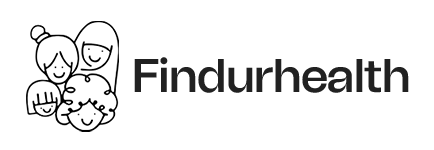Maintaining a balanced diet during pregnancy is crucial for the health and well-being of both the mother and the baby. A well-planned diet ensures that the expecting mother gets all the necessary nutrients, supports fetal development, and helps manage common pregnancy-related issues like nausea and constipation. Here’s an in-depth guide to a nutritious pregnancy diet plan that every woman should know.
Key Nutrients Needed During Pregnancy
Folate and Folic Acid
Folate is essential for preventing neural tube defects in the developing fetus. Leafy greens, citrus fruits, beans, and fortified cereals are all excellent sources of folate. Additionally, taking folic acid supplements is often recommended, particularly during the first trimester.
Iron
Iron is vital for making hemoglobin, the protein in red blood cells that carries oxygen to the tissues. Pregnant women need double the amount of iron to supply oxygen to the baby. Sources of iron include lean meat, poultry, fish, iron-fortified cereals, and legumes. Combining iron-rich foods with those high in vitamin C, such as oranges, can improve the absorption of iron.
Calcium
Calcium is necessary for building strong bones and teeth for the baby, and also for maintaining the mother’s bone health. Dairy products, fortified plant-based milks, leafy greens, and tofu are excellent sources of calcium.
Protein
Protein supports the growth of fetal tissues, including the brain, and is also important for the mother’s muscle growth and blood supply. Good sources of protein include lean meats, poultry, fish, eggs, beans, peas, nuts, seeds, and soy products.
DHA
Docosahexaenoic acid (DHA) is an omega-3 fatty acid that is crucial for the development of the baby’s brain and eyes. DHA can be found in fatty fish like salmon, DHA-fortified eggs, and certain prenatal vitamins.
Daily Food Group Recommendations
Fruits and Vegetables
Try to include at least five servings of fruits and vegetables in your daily diet. These foods provide essential vitamins, minerals, and fiber. Including a variety of colors in your diet ensures you receive a broad spectrum of nutrients.
Whole Grains
Whole grains such as whole wheat bread, brown rice, oats, and quinoa should be included in your diet. These are a good source of energy and provide fiber, iron, and B vitamins.
Dairy
Include three to four servings of dairy or dairy alternatives daily. This ensures adequate calcium and vitamin D intake. Options include milk, cheese, yogurt, and fortified plant-based alternatives.
Lean Proteins
Consume two to three servings of lean proteins each day. Besides animal sources, plant-based proteins like beans, lentils, and tofu are also beneficial.
Managing Common Pregnancy Symptoms Through Diet
Morning Sickness
To alleviate nausea, try eating small, frequent meals throughout the day. Include bland, easy-to-digest foods such as crackers, toast, and bananas. Ginger tea and peppermint can also help soothe the stomach.
Constipation
Increase fiber intake through fruits, vegetables, and whole grains to help with bowel movements. Stay hydrated by drinking plenty of water and consider moderate physical activity, like walking.
Heartburn
Avoid spicy, fatty, and acidic foods that can trigger heartburn. Opt for smaller, more frequent meals and refrain from lying down right after eating.
Foods to Avoid During Pregnancy
High-Mercury Fish
Limit intake of high-mercury fish like shark, swordfish, king mackerel, and tilefish, as high mercury levels can harm the baby’s developing nervous system. Opt for lower-mercury fish like salmon, shrimp, and canned light tuna.
Unpasteurized Products
Avoid unpasteurized milk and cheeses, as well as raw or undercooked seafood, eggs, and meats. These can contain harmful bacteria that can lead to foodborne illnesses.
Caffeine
Keep your caffeine intake below 200 milligrams per day, roughly equivalent to one 12-ounce cup of coffee. Excessive caffeine consumption has been associated with a higher risk of miscarriage and low birth weight.
Alcohol
Avoid alcohol entirely during pregnancy, as it can cause serious birth defects and developmental issues.
Conclusion A healthy pregnancy diet isn’t about strict restrictions but about maintaining a balanced intake of essential nutrients to support both the mother and the developing baby. By focusing on nutrient-rich foods and being mindful of what to avoid, expecting mothers can enhance their pregnancy journey. For personalized dietary guidance and support, consider consulting nutritionists at Findurhealth, who can help you navigate your nutritional needs and work towards a safe and healthy delivery.




